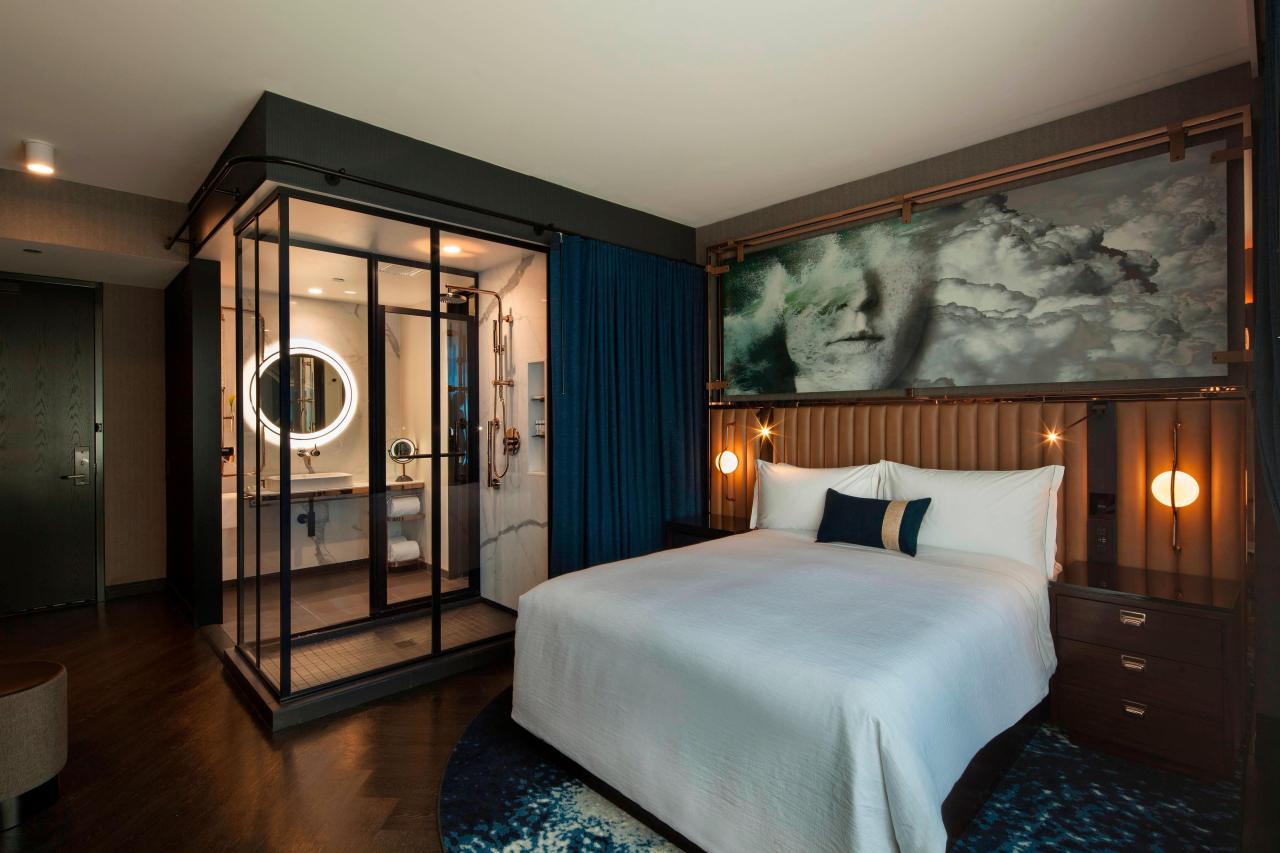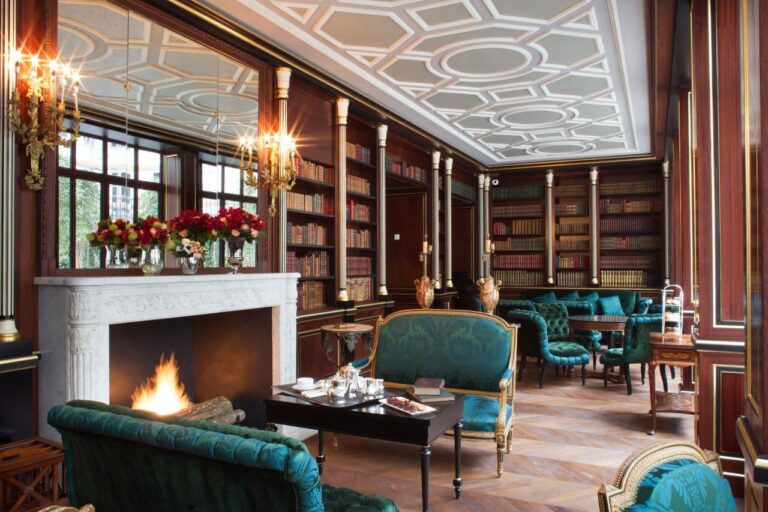In a world increasingly dominated by standardized chains, boutique hotels stand out as vibrant havens of individuality, charm, and personalized service. These intimate, often independently owned establishments offer a refreshing alternative to the conventional, promising not just a place to sleep, but an immersive experience steeped in local culture, distinctive design, and bespoke hospitality. For the traveler seeking authenticity, character, and a story to tell, boutique hotels are the ultimate choice. This comprehensive exploration delves into what defines these unique properties, their profound impact on the travel landscape, and why they continue to capture the hearts of discerning guests worldwide.
The Allure of the Boutique Hotel Concept

The essence of a boutique hotel lies in its ability to offer a deeply personal and memorable stay. It’s a departure from the cookie-cutter approach, focusing instead on creating an atmosphere that feels both exclusive and genuinely welcoming.
A. Distinctive Design and Thematic Decor
One of the most striking features of a boutique hotel is its distinctive design. Unlike chain hotels that often adhere to a uniform aesthetic, boutique properties embrace individuality. Each hotel tells a unique story through its architecture, interior design, and curated decor. This might involve a specific theme – perhaps an artistic style, a historical period, or a cultural narrative – that permeates every aspect of the property, from the lobby to individual guest rooms. Think custom-made furniture, local artwork, unique lighting fixtures, and a meticulous attention to detail that creates a truly inspiring and often Instagrammable environment. This focus on aesthetic pleasure transforms a simple stay into a visual journey.
B. Intimate Scale and Personalized Service
Boutique hotels are inherently smaller than large chain properties, typically featuring fewer rooms (often ranging from 10 to 100). This intimate scale is a crucial element, allowing for a level of personalized service that is virtually impossible in larger establishments. Staff members can genuinely get to know guests, anticipate their needs, and offer tailored recommendations. It’s common for the owner or manager to be actively involved, fostering a familial atmosphere. This human touch, where guests feel recognized and valued, is a significant draw, making each stay feel less like a transaction and more like a visit to a trusted friend’s exquisite home.
C. Local Immersion and Authentic Experiences
Many boutique hotels are deeply rooted in their local surroundings. They often draw inspiration from the culture, history, and natural beauty of their location, integrating these elements into their design, cuisine, and service offerings. This can translate into partnerships with local artisans, chefs, and tour operators, providing guests with authentic experiences that go beyond typical tourist traps. Staying at a boutique hotel often feels like gaining insider access to a destination, allowing travelers to connect more profoundly with the place they are visiting. It’s about feeling like a local, not just a visitor.
D. Curated Amenities and Unique Offerings
While boutique hotels might not boast the sheer volume of amenities found in large resorts, what they offer is thoughtfully curated and unique. Instead of generic offerings, you might find a bespoke cocktail bar featuring local spirits, a small art gallery, a rooftop garden with stunning views, or a library filled with rare books. Some might host intimate concerts, cooking classes with local chefs, or guided cultural walks. These unique amenities are chosen to enhance the specific theme or character of the hotel, providing a more refined and memorable experience tailored to a niche interest.
E. Focus on Storytelling and Sense of Place
At its heart, a boutique hotel excels at storytelling. Every design choice, every piece of art, every service offered contributes to a narrative that defines the property. This creates a strong “sense of place,” where the hotel feels inextricably linked to its environment. Guests aren’t just checking into a room; they’re stepping into a meticulously crafted world that evokes emotions, sparks curiosity, and ultimately leaves them with a compelling story of their own to share.
The Evolution and Growth of the Boutique Segment
The concept of boutique hotels, pioneered in the 1980s, has blossomed into a global phenomenon, constantly evolving to meet contemporary travel demands while retaining its core identity.
A. From Niche to Mainstream Appeal
Initially a niche market appealing to avant-garde travelers, boutique hotels have moved into the mainstream. Their success has inspired larger hotel chains to launch their own “lifestyle” or “boutique-lite” brands, though often lacking the true independent spirit. This mainstream appeal is driven by a growing desire among travelers for more personalized, design-led, and experiential stays across various price points. The market has expanded beyond luxury to include mid-range and even budget-friendly boutique options.
B. Impact of Social Media and Visual Culture
The rise of social media, particularly platforms like Instagram and Pinterest, has been a significant catalyst for the growth of boutique hotels. Their inherently photogenic and unique designs make them ideal for sharing, leading to organic word-of-mouth marketing and widespread visibility. Travelers are increasingly seeking out visually appealing accommodations that provide a backdrop for their travel stories, and boutique hotels perfectly fulfill this desire.
C. Independent Spirit vs. Small Collections
While many boutique hotels remain fiercely independent, there has been a trend towards the formation of small, curated collections or soft brands that allow independent hotels to retain their unique identity while benefiting from a larger marketing and distribution network. This provides independent properties with the tools to compete with larger chains without sacrificing their core values.
D. The Rise of “Lifestyle” Brands by Large Chains
Recognizing the immense popularity of the boutique concept, major hotel chains have launched their own “lifestyle” brands. While these brands often incorporate elements of boutique design and service, they typically operate on a larger scale and with standardized operational procedures. Examples include Marriott’s Autograph Collection, Hilton’s Curio Collection, and IHG’s Kimpton Hotels. While they offer a distinct experience from their parent brands, they strive to replicate the boutique feel within a corporate framework.
E. Technology for Enhanced Guest Experience
Boutique hotels are embracing technology to enhance, not detract from, the personal touch. This includes seamless online booking systems, mobile check-in options, in-room tablets for guest services, and personalized digital communication. The aim is to use technology to free up staff to focus on genuine human interaction and bespoke service, rather than replacing it.
The Economic Significance of Boutique Hotels

Beyond their aesthetic appeal, boutique hotels play a vital economic role, fostering local economies, driving innovation, and contributing to the overall vibrancy of a destination.
A. Supporting Local Economies and Artisans
Boutique hotels often prioritize sourcing locally – from food and beverages to artwork, furniture, and amenities. This commitment directly supports local economies and provides opportunities for local artisans, designers, and suppliers. This symbiotic relationship strengthens the community and ensures that tourism benefits a wider array of local stakeholders.
B. Job Creation with a Personal Touch
While perhaps employing fewer people than mega-resorts, boutique hotels create jobs that often require a higher degree of personalized service and attention to detail. This fosters a skilled workforce with a deep understanding of guest relations and a passion for hospitality, contributing to a high-quality service industry.
C. Driving Innovation in Design and Service
The competitive nature of the boutique segment encourages constant innovation in design and service. These hotels are often pioneers in adopting new trends, materials, and guest experiences, pushing the boundaries of what is expected in hospitality. This creativity often influences the broader hotel industry, setting new benchmarks for quality and aesthetics.
D. Attracting High-Value Travelers and Repeat Business
Travelers who choose boutique hotels often value unique experiences and are willing to pay a premium for them. They tend to be more engaged with the destination and spend more on local attractions, dining, and shopping. The highly personalized experience also fosters strong guest loyalty and repeat business, leading to a stable revenue stream for these properties.
E. Revitalizing Neighborhoods and Historic Buildings
Many boutique hotels are established in historic buildings or contribute to the revitalization of urban neighborhoods. By repurposing old structures with creative design and modern amenities, they breathe new life into areas, preserving architectural heritage and attracting further investment and foot traffic. This plays a significant role in urban regeneration.
How to Choose Your Perfect Boutique Stay
Selecting the ideal boutique hotel is an exciting part of the travel planning process. Here’s how to ensure your choice aligns with your desires for a truly special experience:
A. Define Your Aesthetic and Vibe Preference
Do you prefer a minimalist, modern aesthetic, a classic and opulent design, or something quirky and eclectic? Understanding your preferred aesthetic and vibe will help you narrow down options. Browse photos extensively to get a feel for the hotel’s character and ensure it resonates with your personal style.
B. Prioritize Personalized Service and Reviews
Since personalized service is a cornerstone of the boutique experience, delve into reviews focusing specifically on staff interactions, responsiveness, and genuine hospitality. Look for mentions of staff remembering names, offering thoughtful recommendations, or going above and beyond to make a stay special.
C. Research Location and Local Integration
Consider how well the hotel is integrated into its local environment. Does it partner with local businesses? Are there unique experiences tied to the destination? A well-chosen boutique hotel should feel like an extension of the local culture, not an isolated bubble.
D. Examine Unique Amenities and Offerings
Look beyond standard amenities and identify the unique offerings that align with your interests. Is there a specific type of bar, a curated art collection, a unique wellness program, or an interesting culinary focus? These bespoke elements are what truly differentiate one boutique hotel from another.
E. Read the Hotel’s Story and Philosophy
Many boutique hotels proudly share their story and philosophy on their websites. Understanding the vision behind the property can give you a deeper appreciation for its character and help you determine if it’s the right fit for your travel values. It’s about connecting with the hotel’s soul.
The Future of Boutique Hospitality
The boutique hotel sector is dynamic and ever-evolving, poised to embrace new trends and technologies while staying true to its core values of individuality and personalized experience.
- Hyper-Niche Specialization: We’ll see an increase in hyper-niche boutique hotels catering to very specific interests, such as hotels for digital detox, properties focused entirely on culinary experiences, or even hotels designed for specific creative pursuits like writing or painting.
- Immersive Tech with a Human Touch: Technology will become even more seamless, integrating immersive tech like augmented reality experiences that bring local history to life within the hotel, or AI concierges that feel less robotic and more like personalized guides, all without losing the human connection.
- Regenerative Tourism Focus: Boutique hotels, given their smaller scale and local connections, are perfectly positioned to lead in regenerative tourism. This means actively contributing to the environmental and social well-being of their local communities, leaving a positive footprint.
- Hybrid Models and Co-Living Spaces: Expect more hybrid models blending boutique hotel elements with co-living spaces, catering to the growing demographic of remote workers and digital nomads seeking both community and luxury amenities.
- Curated Retail Experiences: Hotels will increasingly feature highly curated retail experiences, offering unique local products, bespoke items, or collaborations with designers that align with the hotel’s aesthetic, allowing guests to take a piece of their unique stay home.
Conclusion
Boutique hotels are more than just places to stay; they are destinations in themselves, offering rich, multi-sensory experiences that resonate long after check-out. For the traveler who yearns for authenticity, appreciates thoughtful design, and values genuine human connection, the world of boutique hospitality promises an unparalleled journey of discovery and delight. They are the heartbeats of local culture, redefining what it means to travel with purpose and style.









